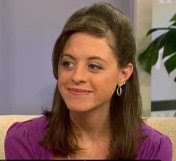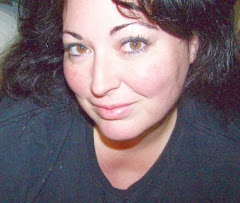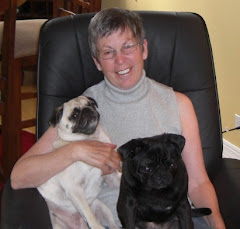http://www.donorsiblingregistry.com/blog/?p=283
An Open Letter to the ASRM from a Donor Conceived Adult
Posted on July 1, 2011 by wendykr
An open letter to the ASRM from Susan Kane, a donor conceived person, in response to Todd Essing’s commentary (Balancing the Rights of Donor Offspring With Those of Donors: But What About Parents? Forbes. June 30/11, http://tinyurl.com/Essig-2011-06-30) which was a response to the commentary that Naomi Cahn and myself placed in BioNews last week (The Birth of Donor Offspring Rights in the USA?, http://tinyurl.com/6ce5kny).
=================================================
As a donor-conceived adult, I appreciate Todd Essing’s observation that “law is a blunt instrument” for managing the gap between technology and social norms governing its use. (Forbes, see above link)
And yet, law is exactly where we turn when people and industries fail to regulate themselves. And, despite Essing’s feeling that gamete donation — with us for over 100 years — is “new”, we have decades of evidence that the current norms and regulations governing gamete donation in the United States are failing everyone.
Following are three quotes from donor conceived adults from this week’s article published in Human Reproduction entitled: “Offspring searching for their sperm donors: how family type shapes the process”
“It makes me angry that I am denied the basic right of knowing who my father was and what ethnicity I am.”
“I am curious as to what my biological father is like, do I have any siblings, what were his parents like.”
“The man who raised me is still my dad, but I’m pissed off . . . I’m missing half of my genetic medical history.”
It’s curious to me that masturbating into a cup or donating eggs seems to Essing an entirely different thing than the more commonly known way of conceiving a baby but not raising it, namely, adoption.
Which part is so confusing? Is it the cup? The presence of doctors? The fact that this is an intentional act on all sides? Does the payment make it confusing? Is it all that pretty, shiny, technology?
Let me ask you for a favor. Stop looking at the cup. It doesn’t have the answers we need. Look me in the eye instead. As it turns out, I’m just like every other human. So, pull our your Psych 101 text and keep it handy while we chat. It applies to me too.
As anyone in the mental health field should know, decades and decades of adoption research has taught us that secrecy in families causes damage. It has taught us that learning that your parents are not your parents late in life wreaks havoc on your basic sense of trust. Most of all, adoption has taught us that genes matter.
They don’t matter more than love. I never said they did. But I challenge you to find an adoption professional in North America today who would tell you that genetics is irrelevant in family creation. Genes matter — today more than ever.
Genes matter to donor families. These families have specifically pursued infertility treatment rather than adoption. The fertility industry *exists* because genes matter. Allowing people to pass on their genetic material is what fertility treatment *does*. It amazes me that genes can matter to the families and doctors you serve and yet both you and Allison Rosen can’t believe that they also matter to *me*.
Who exactly gets to decide whether donor anonymity — being cut off from part of your genetic heritage — matters? Is it the parents of donor children? Is it the donors, kind people that they are? Doctors? Forbes’ columnists? Mental health professionals?
The answer, Mr. Essing, is that we do. We get to decide whether it matters to us. And the answer is: it does.
I’m sorry that your professional group chose not to learn anything from adoption research, but I’m here to tell you that the kids are all grown up. We’re not children under our parents’ care — we are teenagers, we are college students, we are the grown parents of our own children. We’ve thought about this system that you so carefully constructed and we’ve decided that it sucks. I’m sorry.
I know that you’re worried about the families and donors you counsel. I appreciate your concern. But I want you — the expert — to look ahead on their behalf, to help them think about the teenager, the college student, the parent. Your job is to advocate *not* for the family sitting before you, but for the family they are about to become — the one that includes a donor child, to whom genes matter.
And if the ASRM had done this, there would be no need for a law in Washington State — because donor anonymity would no longer exist. But you failed to advocate for us. You chose convenience over conscience. You chose the present tense over the lessons of history. And so we have stepped in to do your job — to advocate for the long-term mental health of donor families. We plan to create a new system that does not pit the needs of children against their parents or their donors. And there will, unfortunately, be conflict between us — until you start listening to everyone you are supposed to serve.
Listen, Mr. Essing. I’m not an angry teenager. I’m a 43 year old woman with two children of my own, also conceived by DI. And what I and other DC adults are telling you, and other members of the ASRM, is that you are *wrong*. You are totally, entirely, and dangerously wrong.
Your policies are wrong, your thinking is wrong, and most importantly, you are on the wrong side of history. I’m very sorry to be the bearer of bad news. Everyone did the best they could, but the system is terribly flawed and we all hate it. We’re telling you to change it now, before we sue.
There aren’t many “older” adults like me. We’re everywhere, of course, but you can’t organize a group of people who are dreaming. But there’s an entire *army* of DC adults coming of age, right now, as we speak. Do you really want to fight the very children you helped create — in court?
It’s your choice. Future generations of textbook writers will judge your actions. When social norms fall behind technology, we need to create them, not wring our hands and wonder what will happen. I’ll see you on the battlefield of history. May the best ideas, the best practices, the best path forward — win.
Susan Kane
Boston, MA
July 1, 2011
Friday, July 1, 2011
An Open Letter to the ASRM from a Donor Conceived Adult
Posted by whosedaughter
Subscribe to:
Posts (Atom)

.jpg)
.jpg)



.jpg)

